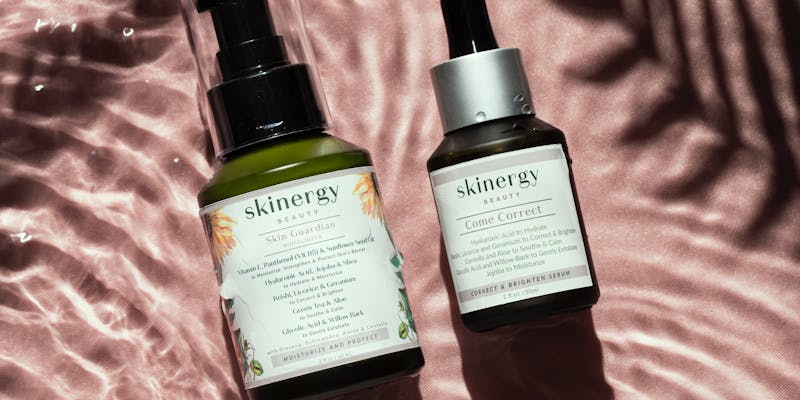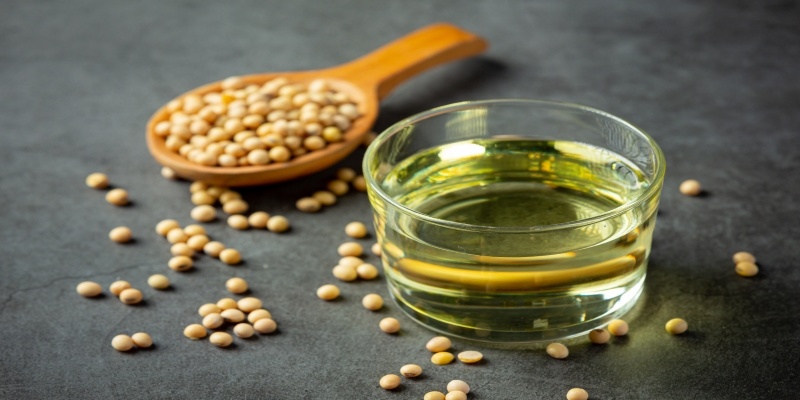We have incredible skin. It serves as more than our skin's outermost layer; it acts as a screen against injuries, infections, and the sun's rays. Not only is it strong, but it is also extremely sensitive, allowing us to sense temperature and touch. We even show our emotions on our skin, like how we flush when we're excited or produce sweat when we're anxious.
In this article, we will discuss the amazing facts about the skin that will blow your mind. So, if you are interested in learning the surprising facts about your skin, you are at the right place. Continue reading!
6 Surprising Facts about Your Skin

Every day, your skin acts as an incredible shield for your entire body. That's not just a layer, though. It's a truly amazing organ with remarkable abilities of its own. We'll discuss six amazing facts regarding your skin in this article that will surprise you.
Your skin is a beautiful miracle of nature, capable of self-healing and playing a crucial part in controlling body temperature. The details of each fact are outlined below.
Skin is the Largest Organ of the Body
Your skin is more than simply a covering on the outside; because it is composed of several tissues that function as a whole, it is regarded as the largest organ. The dermis, the epidermis, and subcutaneous tissue are among these tissues. Each of these factors is essential to preserving your health and well-being.
The subcutaneous tissue provides insulation and cushioning, the dermis holds arteries, veins, nerve endings, and glands, and the epidermis is a barrier against possible dangers. Together, these structures form a complex structure that plays a major role in maintaining your overall health.
You have huge skin. It takes up roughly 1.73 square meters of space, which is equivalent to a large blanket covering 18.5 square feet. In reality, it's your body's largest organ. Its large protective cover is essential for preventing injuries, keeping pathogens away, and shielding you from environmental factors like pollution and sunlight.
Skin Regenerates Itself
When your skin is injured, it has a remarkable capacity to repair itself. When you cut or scrape, your skin begins to heal the injury immediately. It accomplishes this by generating newer skin cells to replenish the damaged ones. This is known as the regeneration process of the skin.
New skin cells emerge under the old ones when they are shed. It is comparable to how trees shed leaves in autumn and then grow new ones in the spring. This cycle, which generally takes a month to complete, keeps your skin youthful and healthy.
Some factors influence how quickly your skin regenerates. Your skin regenerates more quickly when you're younger but slows down as you age. Pollution and excessive sun exposure may also hinder this process and accelerate your skin's aging process.
Skin Regulates Body Temperature
One of the amazing facts about your skin is that it acts as a kind of thermostat. Your skin acts as a cooling agent when you become heated, such as on warm days or after exerting yourself. It accomplishes this by causing you to sweat, and when the perspiration evaporates, heat is removed from your body.
Your skin acts in a reverse way on cold days, constricting blood vessels to retain heat within. Your skin acts as a kind of intelligent thermostat, ensuring that you are comfortable no matter what the weather.
There are several advantages to controlling body temperature by the skin. It helps us function better both physically and psychologically, keeping us pleasant regardless of the weather and avoiding health issues like scorching or getting too cold. It also guarantees restful sleep and conserves energy for other essential responsibilities.
Role of Melanin in Controlling Our Skin Color
The pigment known as melanin, which controls the shade of our skin, appears, and our genes decide our skin color. It shields us from the sun's rays like a natural sunscreen. Our skin becomes darker as our melanin levels increase.
People's skin changed as they migrated to areas with varying levels of sunlight. Darker-colored skin helps absorb more sunlight to produce vitamin D in less sunny areas, whereas lighter skin helps protect against UV damage in sunny areas. As a result, skin tone evolved to suit different environments.
Skin Indicates Health Problems
Skin changes are frequently a sign of underlying health problems that require medical treatment. For instance, unexpected adult outbreaks of acne may indicate stress or hormonal imbalances, whereas pigmentation spots or changes in skin tone may indicate skin cancer or diabetes.
Furthermore, changes in the hydration or texture of your skin might provide important details about your general health. While excessive perspiration or oily skin may be an indication of hormone imbalances, dry, itchy skin may be a sign of dehydration or other skin diseases like eczema. You can ensure early identification and treatment of possible health issues by getting professional assistance.
Connection of Skin with Emotions
Our nervous system is closely linked to our skin, as nerve endings carry messages to the brain regarding touch, pain, and temperature. Due to this connection, emotions can affect how the skin reacts. For example, stress can cause hormonal changes that result in hives or blushing from embarrassment.
For healthy skin, stress management and emotional well-being are crucial. While relaxation methods like meditation and seeking assistance can help maintain vibrant and healthy skin, stress may worsen skin conditions like acne.
How to Maintain Good Skin?

Cleanse your skin once a day with a mild cleanser, moisturize it, and use sunscreen to keep it healthy. Consume a well-rounded diet, stay hydrated, and use relaxation methods to help you cope with stress. Stay away from cigarettes, too much alcoholic beverages, and harsh skincare routines.
Give regular exercise a high priority and treat your skin gently. These regimens promote hydration, shield the skin from harmful UV rays, and provide essential nutrients for good skin. Consistency in a skincare routine and a balanced diet are essential to achieve and maintain youthful skin.
Conclusion
Our skin is incredible. It is more than just a layer of defense; in addition to keeping us safe, it also detects touch and temperature and displays our feelings. Realizing that our skin can regulate body temperature and cure itself is even more amazing. So, be consistent with your skincare routine to get beautiful and youthful skin.




